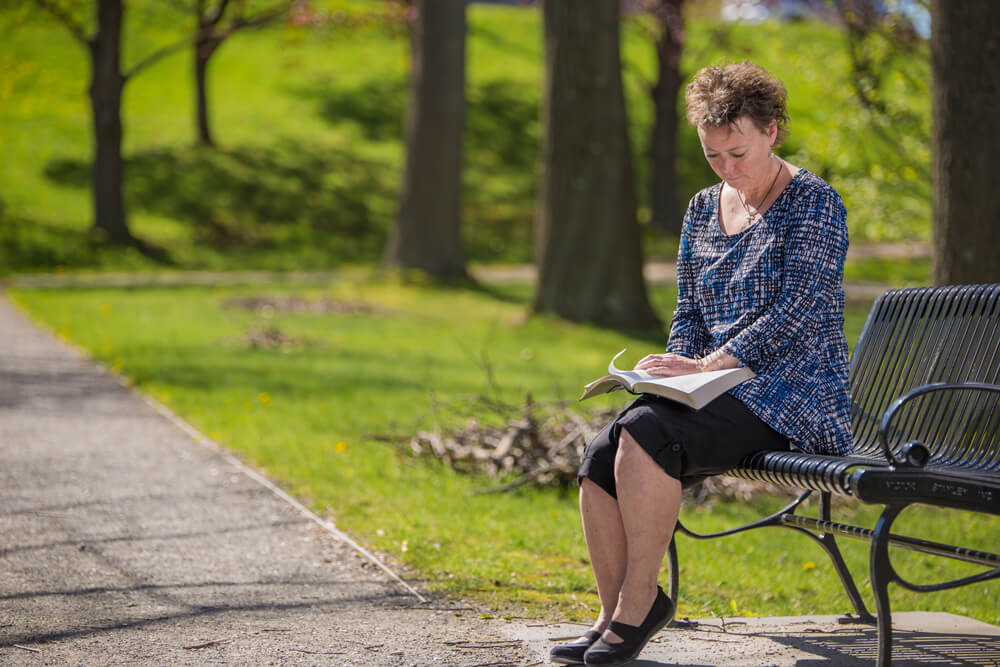
If you were told the story of a woman who was questioned by a school official about her self-expression as a Christian, told she could not mention prayer at work—even in private conversations with fellow church attenders—and afraid to even say phrases as innocuous as “Praise the Lord,” you might suspect her story took place in a communist country like the former Soviet Union or an Islamic theocracy like Saudi Arabia.
These things, after all, shouldn’t happen in the United States of America, famous for its guarantees of religious liberty and freedom of speech. Yet America is exactly where this story takes place. It’s a good of example of how unlawful hostility to religious expression—when left unchallenged—can chill religious speech and lead to an environment of fear for people of faith. It can lead to the slow death of religious freedom.
This is the story of Toni Richardson, a First Liberty client and a school employee in Augusta, Maine, who works with special needs students. Toni is also a devout Christian, and in a private conversation, she had sought to encourage a coworker—who was also a fellow church attender—by telling him that she would pray for him.
INTERROGATED, THREATENED, “COACHED”
However, a school official later questioned Toni about whether she had ever identified as a Christian to others, told people that she would pray for them, or made any “faith-based statement[s]”—including phrases like “That’s a blessing.” The school official banned Toni from mentioning prayer on school property—even in private conversations with fellow church attendees.
After that conversation, Toni then also received a “coaching memorandum” which stated that mentioning prayer on school grounds was “not acceptable.” The “coaching memorandum” ominously warned Toni that she could face “disciplinary action” or, even, termination if she said anything in the future that was “deemed unprofessional” by school administrators. The memo instructed Toni that it was “imperative” that she “not use phrases that integrate public and private belief systems when in the public schools.”
AN ENVIRONMENT OF FEAR
Americans once took for granted the freedom to practice faith and engage in private conversations without fear of government retribution, even if those conversations include mentions of our faith or take place on public property.
Yet Toni’s case shows how healthy, vibrant “free exercise” of religion is transforming into an environment where all that’s guaranteed is “freedom of worship”—the ability to express faith at church or at home, but not faith lived out in every area of life.
Toni Richardson engaged First Liberty and one of its volunteer attorneys—from a top law firm in Maine—to represent her. With First Liberty’s help, she filed a complaint with the federal Equal Opportunity Employment Commission (EEOC). In her complaint, Toni explained how she had changed since her questioning by the school official:
“I have self-censored my speech in private conversations, stripping it of anything that sounds religious. I used to say a lot of things to my colleagues during casual, private conversations. For instance, I might say, “Praise the Lord” when something good is happening or “God love her” when I’m frustrated with the behavior of my children. But now, things are different.…At times, I have even consciously avoided wearing jewelry with crosses on it for fear of violating the directives of the coaching memorandum and facing further discipline or dismissal.”
She noted that her demeanor changed to the point where some coworkers have taken note and asked Toni what was going on.
Toni is only one person in a country of hundreds of millions. But her story illustrates the way religious liberty could be lost if Americans of faith are intimidated and simply too afraid to engage in religious expression.
RELIGIOUS LIBERTY CAN BE SAVED
America is certainly not on the level of Russia or China or other nations hostile to religious liberty. Yet, as documented by First Liberty Institute’s annual report UNDENIABLE: The Survey of Hostility to Religion in America, religious liberty in America is being challenged with increasing severity. In fact, the United States appeared for the first time in International Christian Concern’s annual report of nations that engage in religious persecution, with cases similar to Toni Richardson’s cited as reasons for the inclusion.
The good news is that the law is on the side of religious liberty. Freedom of religion is an American tradition and the birthright of every American citizen. However, whether religious freedom is saved or lost is largely dependent on three factors: (1) How people of faith respond when their freedom to practice faith is challenged. (2) How robustly they are defended by experts in religious liberty law. (3) How much support they receive from others who recognize the emergency and take action.
Fortunately, Toni’s story doesn’t end with the coaching memorandum, her reluctance to mention her faith, or her fear of losing her job. Instead, Toni had the courage to take a stand. When she did, attorneys were there to represent her. And these attorneys were provided by Americans who have gotten behind such efforts to use the legal system to push back against the intimidation and discrimination. Because of courageous Americans like Toni and those standing with such victims of religious discrimination, religious freedom doesn’t have to melt away in America. But clearly it is time to stand.
News and Commentary is brought to you by First Liberty’s team of writers and legal experts.